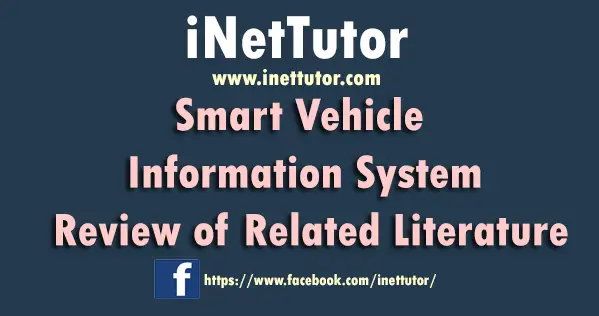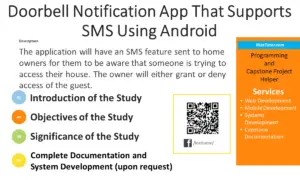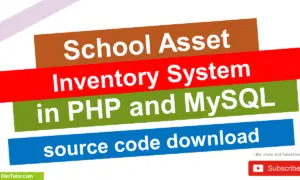Tourism Resource Hub Application
Introduction
Table of Contents
Tourists and tourism stakeholders often face significant challenges in accessing and managing tourism information. Tourists struggle with finding reliable information about destinations, local attractions, accommodations, and services, while tourism stakeholders such as businesses and local authorities find it difficult to provide up-to-date information and engage effectively with potential visitors. These challenges can lead to frustration, missed opportunities, and a less enjoyable travel experience.
The Tourism Resource Hub Application aims to address these issues by providing a centralized platform where tourists can easily find comprehensive information about various destinations. This application will offer features like destination search, booking and reservation systems, local attraction listings, travel guides, and user reviews. By integrating these functionalities into one user-friendly interface, the application will streamline the process of planning and enjoying a trip, making it more convenient for tourists to access the information they need.
This project leverages modern web technologies to create a robust solution that benefits both tourists and tourism stakeholders. By using advanced tools for front-end and back-end development, as well as integrating APIs for additional services like maps and weather updates, the Tourism Resource Hub Application will enhance the overall travel experience. With a focus on usability and accessibility, this platform aims to bridge the gap between tourists and the wealth of information available, ensuring a smoother, more informed travel experience.
Literature Review
Existing Tourism Resource Applications: Various applications and platforms currently exist to assist tourists in planning their trips and accessing information. These include popular apps like TripAdvisor, Expedia, and Airbnb, which provide details on accommodations, attractions, reviews, and bookings. While these applications are widely used, they often focus on specific aspects of travel, such as lodging or flight bookings, rather than offering a comprehensive solution that encompasses all aspects of tourism resource management.
Digital Trends in the Tourism Industry: The tourism industry has increasingly embraced digital transformation to enhance the travel experience. Trends such as personalized travel recommendations, virtual tours, augmented reality for destination previews, and AI-powered chatbots for customer service are becoming prevalent. These technologies aim to provide more tailored and immersive experiences for travelers. Despite these advancements, there remains a need for an integrated platform that consolidates these technologies into a unified resource hub.
Gaps and Opportunities in Current Solutions: While existing applications provide valuable services, there are notable gaps in offering a holistic approach to tourism resource management. Current solutions often lack seamless integration between different services, leading to fragmented user experiences. Additionally, there is an opportunity to leverage emerging technologies to provide more interactive and personalized experiences. The Tourism Resource Hub Application aims to fill these gaps by offering a comprehensive, user-friendly platform that integrates various services, including accommodation, attractions, local services, and real-time updates, thereby enhancing the overall travel experience for users.
Features and Functionality
- User Registration and Authentication: Provide a secure and user-friendly registration process for travelers to create accounts and access personalized features within the application
- Destination Search and Information: Enable users to search for destinations and access comprehensive information about attractions, accommodations, transportation options, and local services.
- Booking and Reservation System: Implement a robust booking and reservation system that allows users to book accommodations, flights, tours, and other travel services directly through the application
- Review and Rating System: Integrate a review and rating system where users can share their experiences and provide feedback on destinations, accommodations, and services.
- Local Attractions and Event Listings: Provide a curated list of local attractions, events, and activities to help users discover unique experiences at their chosen destination
- Travel Guides and Itineraries: Offer pre-designed travel guides and customizable itineraries to assist users in planning their trips and maximizing their travel experiences.
- User Profile Management: Allow users to manage their profiles, save preferences, and access their booking history and upcoming trips.
By incorporating these features and functionalities, the Tourism Resource Hub Application can provide a comprehensive and user-friendly platform for travelers to access and manage tourism information, plan their trips, and make bookings with ease.
Technology Stack
To bring our Tourism Resource Hub to life, we’ll be using a combination of tools and technologies:
PHP is a popular server-side scripting language known for its ease of use and compatibility with various databases, making it suitable for handling dynamic content and interacting with the MySQL database.
MySQL is a widely used open-source relational database management system that provides efficient data storage and retrieval capabilities. It can be integrated with PHP to handle data related to user registration, booking and reservation systems, and user profile management.
JavaScript is a versatile programming language that runs on the client-side, enabling interactive and dynamic features within web applications. It can be used to enhance the user experience, handle form validations, and interact with mapping APIs.
Mapping APIs, such as Google Maps and OpenStreetMap, provide geolocation services, mapping functionalities, and access to a vast amount of geographic data. These APIs can be utilized to implement destination search and information, display maps, plot markers, and provide directions within the Tourism Resource Hub Application.
By leveraging PHP, MySQL, JavaScript, and mapping APIs like Google Maps and OpenStreetMap, the Tourism Resource Hub Application can offer a robust and user-friendly platform for travelers to access comprehensive tourism information, make bookings, and manage their travel experiences effectively.
Implications and Future Directions
Implications for the Tourism Industry:
The findings from developing a Tourism Resource Hub Application highlight significant improvements in how tourists and stakeholders access and manage tourism information. By integrating features like real-time destination searches, booking systems, and user reviews, the application addresses key pain points such as fragmented information sources and inefficient booking processes. The enhanced accessibility and organization of data provided by the hub can lead to better decision-making for tourists and more streamlined operations for tourism businesses. This digital approach helps create a more cohesive and user-friendly experience, which can ultimately drive increased tourism and enhance overall satisfaction.
Future Directions for Development:
Looking ahead, there are several avenues for enhancing the Tourism Resource Hub. One potential direction is incorporating advanced technologies such as artificial intelligence and machine learning to offer personalized recommendations and predictive analytics. These technologies could analyze user behavior and preferences to suggest tailored travel options and optimize the booking process. Additionally, expanding the application to support multilingual capabilities could make it more accessible to international tourists. Implementing augmented reality (AR) features could also enrich the user experience by providing interactive and immersive ways to explore destinations.
Broader Impact on Tourism Management:
The research and development of tourism resource hubs have broader implications for the field of tourism management. As more destinations and service providers adopt similar digital solutions, there is potential for creating a more interconnected and efficient tourism ecosystem. Enhanced data integration and management can lead to better insights into tourism trends and patterns, allowing stakeholders to make informed decisions and develop targeted strategies. Furthermore, the push towards digital solutions aligns with the growing trend of smart tourism, where technology plays a crucial role in shaping the future of travel and hospitality. By embracing these advancements, the tourism industry can improve service delivery, enhance visitor experiences, and foster sustainable growth.
Conclusion
This research aimed to develop a Tourism Resource Hub Application to address the challenges faced by tourists and tourism stakeholders. By integrating features like destination search, booking, reviews, and mapping, the platform seeks to enhance the overall travel experience. The application leverages PHP, MySQL, and mapping APIs to deliver a user-friendly and informative platform. We envision this solution as a catalyst for growth in the tourism industry, empowering both travelers and businesses. We encourage tourism boards, travel agencies, and accommodation providers to adopt similar digital solutions to elevate their offerings and contribute to the development of sustainable tourism.
Readers are also interested in:
- 39 List of Arduino Based Capstone Projects
- Best 75 List of IT Capstone Project for Agriculture
- PHP MySQL and Bootstrap Capstone Projects
- 20+ Free Capstone Project Ideas
- Thesis and Capstone for SAD and Software Engineering
You may visit our Facebook page for more information, inquiries, and comments. Please subscribe also to our YouTube Channel to receive free capstone projects resources and computer programming tutorials.
Hire our team to do the project.


